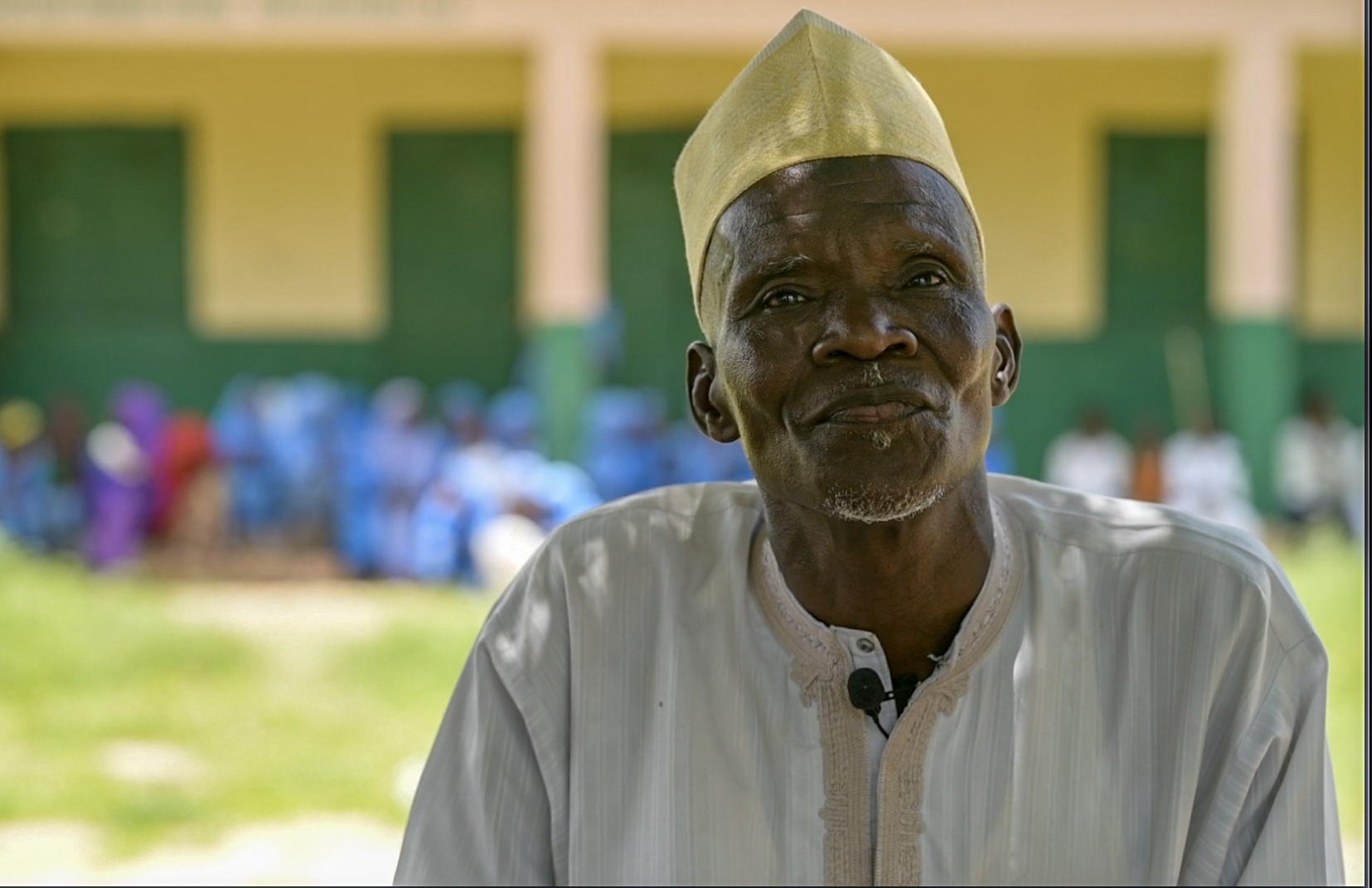UNDP, through the Regional Stabilization Facility for Lake Chad is responding to the education crisis in the northeast by providing access to quality education within a safe learning environment, gaining the skills and knowledge for lifelong learning.
“I was sitting in front on my house, when I heard loud noises coming from the school compound. Few minutes later, I saw smoke coming out from the direction of the classroom that I teach. I quickly ran and called the village head. By the time we got to the school everywhere was in flames. We saw some men and boys burning down the school. One of them warned me to leave the town or else I will be killed. That was how I and my children escaped the insurgency which started in 2013” said Hadiza Lawan, a teacher in Shuwari Primary School, Buni Yadi
Hadiza Lawan, a teacher in Shuwari Primary School, Buni Yadi
Boko haram’s attacks on schools, students, and teachers in northeast Nigeria has had a devastating impact on education. The conflict has left nearly 1 million children with little or no access to school or quality education. Almost 1,400 schools have been destroyed with the majority unable to open because of extensive damage or because they are in areas that remain unsafe.
Schools in Buni Yadi, Gujba Local government of Yobe State were abandoned and left in ruins as people fled their homes after Boko Haram attacked the community in 2014, killing hundreds of people and causing hundreds of others to flee for their lives. Education was profoundly affected as a result of the targeted attacks on school children, teachers, schools and other education facilities.
UNDP, through the Regional Stabilization Facility for Lake Chad is responding to the education crisis in the northeastby providing access to quality education within a safe learning environment, gaining the skills and knowledge for lifelong learning. This is being achieved through rehabilitation of schools and classrooms and training of teachers to build a stronger education system for the future.
Aisha, a student at Shuwari School.
“I did not expect to return to my school here in Shuwari after it was destroyed during armed conflict that took place in the city in 2014. I am glad to see the classrooms and school building in a new dazzling look after the rehabilitation” said Aisha, a student at Shuwari School.
After several years of conflict, the rehabilitation and construction of primary schools in Buni Yadi, is underway. Reclaiming learning spaces in Shuwari and kansanchiya primary school sends a message of hope to students who are yet to resume class activities.
Through the Regional Stabilization Facility for Lake Chad, damaged classrooms at Shuwari primary school have been rehabilitated to encourage community members to return their kids back to school, opening their doors to hundreds of students keen on continuing their learning. The refurbished primary school consists of 7 blocks of classrooms.
“When we came back after the insurgency there were not enough classrooms, and there were no trees where we could sit down to teach our students. We had to rotate classes until UNDP intervened and renovated some blocks of classrooms for us.” Hadiza added.
Dr. Abubakar Garba Iliya, Commissioner for Humanitarian Affairs and Disaster Management in Yobe, highlighted that UNDP and the government have intervened in the areas of education through rehabilitation of schools. According to him, “Government is particularly happy with UNDP. These developments have been achieved despite the disruption of the corona virus pandemic. Even under such situations we can function and this is really commendable. One key output that is expected from this interventions is the enrollment of students to schools and with this we hope that the quality of life in the town will also improve.”
Kasanchiya primary school
Kasanchiya primary school also suffered great damaged during the insurgency and is being renovated with the help of Regional Stabilization Facility. “When Boko Haram came, they burnt down our school. With the help of the government and UNDP, the school is being rehabilitated and new blocks of classrooms are currently being built. We are hopeful that after this constructions and provisions of learning tools, our children will be back to school” said Usman Maina, Principal of the Kasanchiya primary school. “On behalf of the teachers and students, we say thank you very much.”
Usman Maina, Principal of the Kasanchiya primary school.
Funded by the European Union, Germany, and the United Kingdom, the Regional Stabilization Facility for Lake Chad is helping the Nigerian Government to improve lives of citizens affected by the insurgency, and to connect more positively with local authorities, giving communities and workers the opportunity to rebuild their own community, whilst earning an income.

 Locations
Locations








